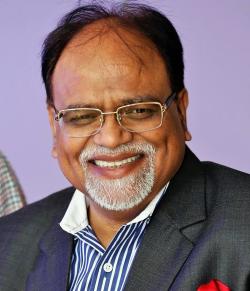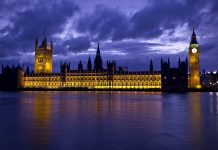When the Gambling Commission kicked off the fourth National Lottery licence programme in late 2018, it looked as if Camelot was set to face stiff competition to hold on to the UK lottery.
The Commission appeared to be casting the net far and wide in a bid to avoid the two-horse race of the previous two National Lottery tenders.
It also made all the right noises about encouraging innovation and courting those with strong tech leanings. Indeed, in the early days even Lottoland said it was considering a bid.
In the middle of last year, Gambling Commission chief executive Neil McArthur said he expected four or five companies to bid for the tender, and certainly the reported number of interested bidders supported this view.
Sir Richard Branson’s Virgin Group was an early rumoured contender, Health Lottery operator Northern & Shell declared an intention to bid and Czech gaming conglomerate Sazka Group also seemed keen.
Once a manager was brought in to oversee the process, rumours started to fly about other potential bidders, with Australia’s Tabcorp, France’s La Française des Jeux and Dutch postcode lottery operator Novomedia all names that were bandied about.
But fast forward to last week’s official launch of the competition and the field seems to have narrowed.
Even before novel coronavirus (Covid-19) hit, potential bidders were becoming disgruntled by delays to the process, which they saw as favouring Camelot.
The pandemic brought about not only further delays – and an extension to Camelot’s licence – but also big changes in circumstances for some of the potential bidders.
Narrowing field
In early May it was reported that Branson was abandoning his bid due to the travails of other Virgin businesses, particularly its airlines.
Shortly afterwards, Northern & Shell owner Richard Desmond came under fire over a controversial planning approval, following which prompted Shadow Culture Secretary Jo Stevens to express concerns over his suitability to bid.
Since then there’s been no confirmation as to whether or not Northern & Shell is still bidding, though it’s worth pointing out that even Camelot and Sazka have shied away from making a firm commitment.
At this point, it’s hard to say with absolute certainty that any particular company will bid. Kamlesh Vijay (pictured, right), group CEO and director at Sugal & Damani, which lost out to Camelot last time the licence was up for renewal, says he doesn’t think the Commission has done enough to encourage bids.
“We find it a little bit uncomfortable and see the Gambling Commission as not pursuing a process that attracts many parties, or not creating encouraging conditions for them to bid.
“There is nothing at stake as far as the Gambling Commission is concerned. They are not taking even minor risks while searching for a new party. They are comfortable that they already have one party in hand. Whether other parties come in doesn’t make any difference to them.”
Sugal & Damani, which operates licensed lotteries in India, as well as supplying technology solutions for lotteries in various other countries via its Skilrock Technologies arm, had publicly attacked the 2007 decision by the previous regulator, the National Lottery Commission (NLC), to award the licence to Camelot, threatening legal action. Similarly, Branson had criticised the NLC and also threatened court proceedings after he failed to secure the licence in 2000.
However, Vijay says he did not see the Gambling Commission’s process this time around as being any different from that of the NLC.
“The Gambling Commission is basically not changing its position; it just wants to repeat a similar process to what has been done before with a change in optics.
“Theoretically, they may be doing everything but practically they are not doing anything for a change. They are asking for suggestions just for the sake of showing it up on their records but then those suggestions are not being seriously considered.”
Among the suggestions Vijay says he put forward in his discussions with the Commission about the tender was that it should bear the cost of participation for the successful bidder, and that it should split the licence into multiple licences to encourage competition in the market. However, he says “there was no favourable response”.
“They are going with the same single licence concept that practically favours the incumbent and it is going to be very difficult for any participant to replace the incumbent of 25 years.”
Significant licence changes
For its part, the Gambling Commission would not comment on any suggestions or discussions regarding those it had engaged with during the process, however, it must be noted that significant changes have been made to the licence this time around.
For a start, it is fixed for a 10-year period with no possibility of extension by the licence holder. This marks a big shift from the current licence, which although initially for 10 years, Camelot was able to extend by four years back in 2012.
Secondly, and perhaps more importantly, is the change in the way Good Causes contributions are calculated.
In what is being referred to by the Gambling Commission as the ‘incentive mechanism’, Good Causes contributions will be collected in two parts. The first is a fixed sum that must be contributed irrespective of sales. The amount of this fixed contribution will form part of the bid put forward by each contender.
In effect, if the licence holder doesn’t meet its sales targets, it could find itself making a loss as it will not be able to reduce this fixed contribution.
In addition, the licence holder will have to give a percentage of any sales over and above the fixed contribution level to Good Causes, meaning contributions will rise in a similar proportion to profits.
It is likely this change came about as a result of criticism of the current licence by the Public Accounts Committee back in 2018. It issued a report expressing concerns over the fact that Camelot’s profits had risen 122% since the beginning of the current licence, but that returns to Good Causes had risen by just 2% over the same period.
The cross-party group criticised the lack of flexibility in the licence contract, saying: “Camelot has made profits well in excess of what was envisaged in the original 2009 licence, whilst returns for good causes have dropped.”
However, Vijay points out that when Sugal & Damani tendered its bid for the last licence, a firm commitment to Good Causes was not enough to sway the NLC.
“I would like to draw your attention to the third licence, wherein we had benevolently made a commitment to cap our net profit to 1%, thereby passing on the benefits to Good Causes,” he says. “Why should Good Causes increase only by 2% when Camelot’s profit increased by 122%?”
Bidders on the fence
Despite reservations about the process, perhaps surprisingly Vijay has not ruled out participating in this competition.
“We are very much in the game, we are in the final stages of creating a strong consortium of credible partners, the details of which I don’t want to disclose at this moment.”
While not exactly a definitive answer, this is perhaps the least non-committal response by any bidder since last week’s announcement.
Northern & Shell has not responded to a request for comment from iGB, while Sazka says it has not yet reached a final decision on whether or not to bid.
Even Camelot is keeping quiet over its plans. “We’re not in a position to confirm whether or not we’ll bid at this stage as we’ve not seen the final Invitation to Apply,” says a spokesperson.
Despite the parties not confirming their intentions, it seems fair to assume that both Sazka and Camelot will bid. In particular, the former’s appointment last month of UK lobbying firm Flint Global as an adviser seems a pretty clear indication it’s still in the running.
Exactly who else is in the running remains to be seen, but with the competition now officially underway, speculation should soon give way to certainty.










